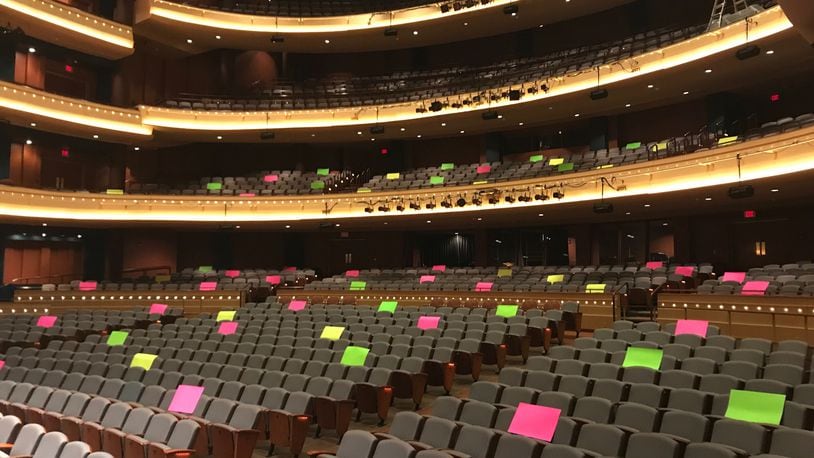“This investment will go a long way in supporting the recovery and resilience of Ohio’s creative economy, which is among the pandemic’s hardest-hit sectors,” said Donna Collins, Ohio Arts Council executive director. “In this season of thankfulness, I join with the OAC board to express my gratitude to Governor Mike DeWine and leaders of the Ohio General Assembly for investing in Ohio’s performing and cultural arts organizations.”
Dayton-area organizations that received grants include:
-Bach Society of Dayton - $19,600
-Culture Works - $19,900
-Darke County Center for the Arts - $38,900
-Dayton Art Institute - $245,200
-Dayton Contemporary Dance Company - $179,600
-Dayton Performing Arts Alliance - $201,700
-Dayton Visual Arts Center - $47,900
-Fitton Center for Creative Arts in Butler County - $74,800
-Gateway Arts Council in Shelby County $33,000
-Human Race - $98,900
-K12 Gallery - $75,300
-Kettering Children’s Choir - $7,300
-Muse Machine - $67,200
-Preble County Art Association - $27,600
-United Irish of Dayton - $20,700
-Victoria Theatre Association - $334,600
-We Care Arts - $61,300
-World House Choir - $1,200
Since the onset of COVID-19, arts organizations across the country, including in the Miami Valley, have stressed the dire situation the pandemic has put the arts community in.
Though the Ohio Arts Council distributed the CARES Act funds, the grants were advocated and proposed to state legislators by the Ohio Citizens for the Arts and its partners.
The federal funds were made available to the OAC through Gov. DeWine and state legislative leaders and through the approval of the state’s Controlling Board.
“We are so appreciative of the Ohio, Montgomery County and City of Dayton CARES act funding received,” Michael Roediger, Dayton Art Institute director and CEO, said. “These funds are vital for keeping the museum moving forward.”
Roediger also serves as the president of the Ohio Citizens for the Arts board of directors. The DAI director said while the grants are certainly appreciated, the funds will not completely close the gap for arts organizations across the state.
“This is getting us through 2020 and for us, it’s not closing all the way,” Roediger said. “We have upwards of a $2 million gap. So this is significant, but we still have $900,000 to close in the next month and a half.”
Though funds have been distributed, the organizations have a long way to go in planning and re-planning their next steps as the unpredictable pandemic continues to wreak havoc on performances and gatherings.
“This grant will enable our organization to offer virtual programming so that we can continue to provide a means for our community to access the arts, albeit in a very new and different way,” said Pat McDonald, president and CEO of the Dayton Performing Arts Alliance. “The next steps for our organization are to continue to evaluate a safe return for patrons, to offer educational content to our schools and educators so that children in our community continue to have access to the learning and growing that comes from experiences with the performing arts, and to offer streaming services that will provide arts experiences in a virtual setting for all audience members until we can return safely to the theaters to share in the performing arts together in person once again.”
For some area organizations, the grant money will help, alleviate most financial stressors brought on by COVID-19.
United Irish of Dayton president Shelagh McGovern said the organization received nearly all the support it had requested.
The funds will be used to offset the operating expenses that resulted from the cancellation of the Dayton Celtic Festival, “and will allow us to start planning for future events without carrying a debt load,” McGovern said.
About the Author
